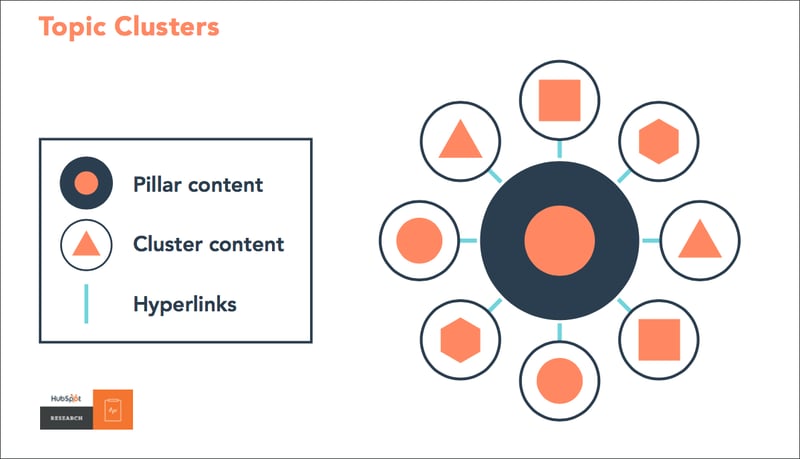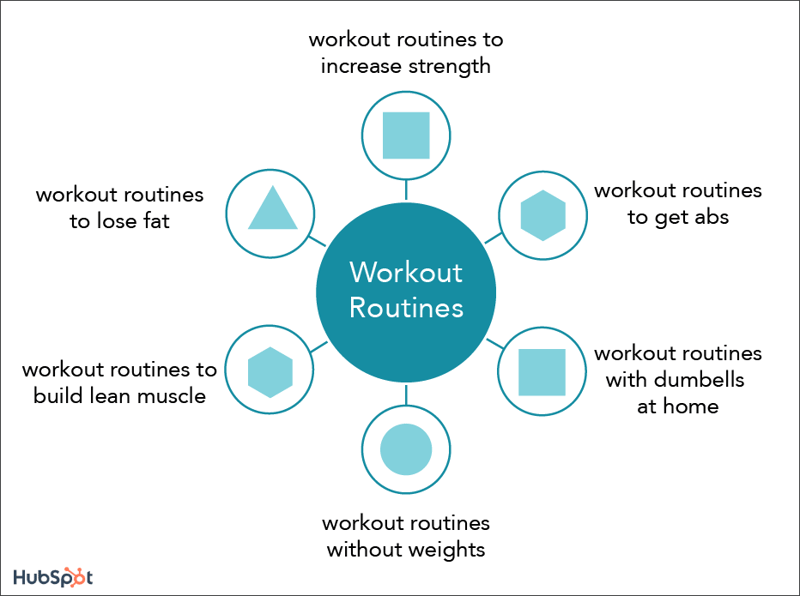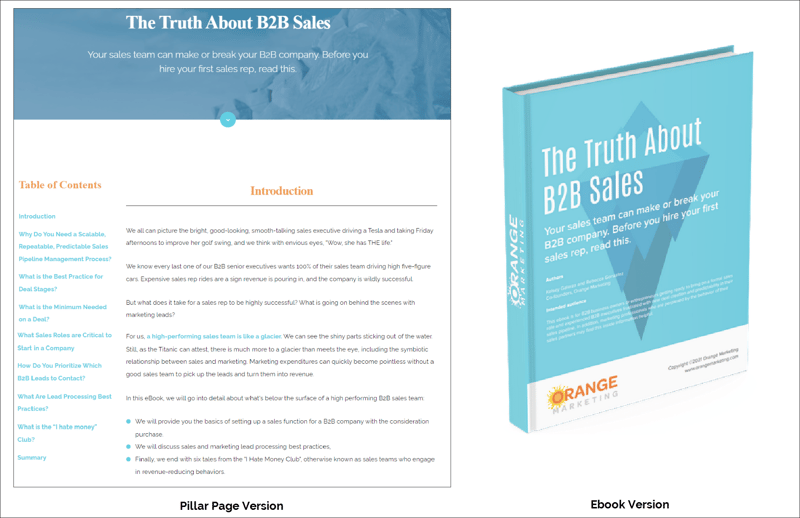3 min read
Keyword Strategies No Longer Work for SEO. Here’s What You Should Do Instead.
![]() Orange Marketing
:
February 28, 2022
Orange Marketing
:
February 28, 2022

Our clients often ask us what SEO keyword strategy is for them. Our answer is basically “we don’t have one” as search engines have become more sophisticated and now care more about how much authority you have on a topic instead of specific keywords. As a result, building content around keywords puts you at a disadvantage when trying to rank. We tend to get push back when explaining this. People will incredulously ask: "Yeah but, don't people still use search terms to search?" Here's what we say.
Content That Answers Intent
Yes. People use keywords to search but they don't just enter one word. And search engines are much more semantic these days. Search engines, and absolutely Google, understand what people are actually looking for—the context—far better than they used to.
According to Search Engine Journal:
(You should) work on diversifying your (marketing) focus with more emphasis on topics over keywords. ...When you broaden your focus to the topic, you create better content (and) actually end up ranking well for the keywords as well, and the results last longer.
Google wants expertise, authority, and trust from websites.
If you can dominate a topic, you’ll create all three of those attributes in spades.
What's the game plan to dominate a topic? We use the hub and spoke approach, also known as a topic cluster, which is strongly recommended by HubSpot.
HubSpot explains:
"The basic premise behind building a topic cluster content program is to enable a deeper coverage across a range of core topic areas, while creating an efficient information architecture in the process."
This manifests itself through a long-form content pillar web page that covers a specific topic in a broad overview. This long-form content is typically 3,000-5,000 words long. Then associated cluster content (i.e. blog posts, web pages, etc.) that drill into various aspects of the topic hyperlink into the pillar.

The goal is to aim for long-tail keywords that give depth to a given topic and help search engines best understand the value of the information you are providing—and how it can answer the questions people are asking through the search engine.

As HubSpot points out:
"The benefit of this model, in addition to organizing your site architecture, is that one high performing cluster page can elevate search rankings for all the other pages linked to the same pillar."
Tips for Creating Pillar Page Content
Get the Most Out of It!
We have a specific process for creating long-form pillar pages and supporting cluster content.
When we write long-form content, we use it to create two assets – a pillar page and an ebook. We do this to follow HubSpot's best practices to achieve four specific things:
- Increase the ranking of your site as a perceived authority by Google and other search engines
- Provide “a reason for calling” to the sales team (hey, we have this new guide, I’d like to send it to you)
- Have assets for paid social advertising or promotion via trade publications etc.
- Serve in “trade” for contact information behind an email address form.
You're already going to be putting in the hard work writing or outsourcing someone to write the long content. Following this process gives you more bang for your buck!
An excellent example of a pillar page/ebook combo is our The Truth About B2B Sales content. On the left is a screenshot of the pillar page, where all 8,000+ words and long-tail keywords are fully displayed. On the right is the PDF ebook of that exact same content. We use it as sales outreach assets and as lead-generation assets that live on a gated landing page, where prospects can supply their contact details to access.

Purposeful Content
Keep in mind that this long-form content is not meant to be exhaustive. It is not a how-to manual or a consulting project. Its goal is to increase the search engine’s ranking of your website as a perceived authority, so the topic should be broadly applicable across your potential buyers in your chosen segment. The content should capture reader interest, include compelling thoughts, provide hyperlinks throughout (especially to its corresponding cluster content), and a small pitch at the end. In many ways, these are thought leadership pieces. Save more in-depth content for whitepapers, which are not as useful for increasing your search engine rankings.
Some examples of high-performing pillar pages we have developed for clients include:
- Solutions to Improve Your Capacity
- 7 Cybersecurity Red Flags Executives Often Miss
- Grow Your Business With Better Contractor Experience
Additional Learnings
We've created hundreds of pillar pages and ebooks over the years and firmly believe that the following tactics will help you have a smooth creation process:
- Create a thorough outline that is approved by all relevant parties before writing commences. Editing long-form content takes time and this step helps ensure that the content being written is what the client wants.
- If hiring an outside writer from a site like nDash, set up an orientation call with the selected writer and your relevant subject matter experts. This will help the writer to understand the client and their product or service, enabling them to better capture the tone, share unique client stories, and generally produce higher-quality content
- Use a tool like Grammarly to check work. With several thousand words to go through, proofreading long-form content is time-consuming and you may inadvertently overlook grammar and spelling errors.
Stay on Top of Best Practices
Search engine algorithms are constantly evolving, which means your online marketing strategies and tactics need to keep up. Right now, topic clusters work well, but you need to stay informed and adjust periodically. To that end, check out our ebook, The Truth About B2B Marketing, which provides timely insights into B2B marketing from an award-winning agency specializing in B2B software and technology companies.
Additional Resources:
The Truth About B2B Sales
The Truth About B2B Email Deliverability
